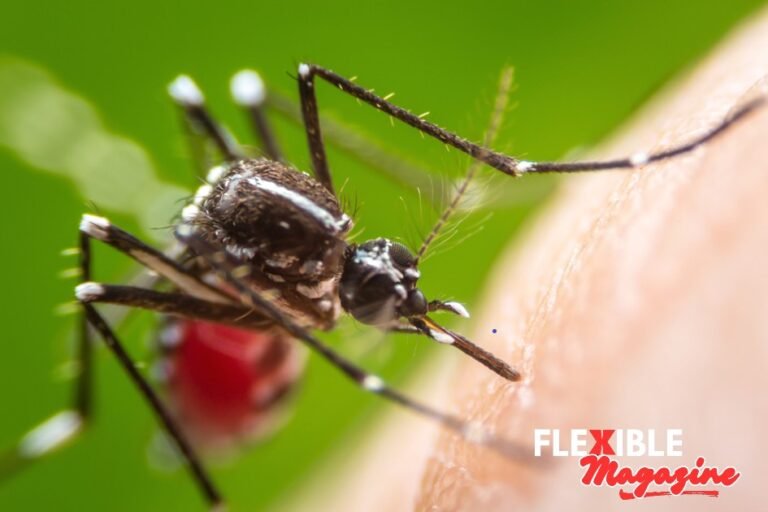Dengue has become one of the most pressing public health concerns in tropical and subtropical regions worldwide. Every year, millions of cases are reported, and outbreaks often stretch healthcare systems beyond their limits. Despite global awareness campaigns, the disease continues to rise due to rapid urbanization, climate change, and poor mosquito control. Understanding dengue thoroughly is not only necessary for health professionals but also for individuals who live in at-risk areas.
This article provides a comprehensive guide to dengue, covering its history, causes, symptoms, diagnosis, prevention, treatment, and the global efforts made to combat this disease.
What is Dengue?
Dengue is a viral infection transmitted to humans through the bite of infected female mosquitoes, primarily Aedes aegypti and, to a lesser extent, Aedes albopictus. The disease is often referred to as “breakbone fever” due to the severe muscle and joint pain it causes.
The dengue virus (DENV) has four distinct serotypes: DENV-1, DENV-2, DENV-3, and DENV-4. Infection with one serotype provides lifelong immunity against that specific type but only partial and temporary protection against the others. This means a person can be infected up to four times, each time with a different serotype.
The History of Dengue
Dengue has existed for centuries. Records of an illness resembling dengue date back to the Chinese medical encyclopedia from 992 AD, where it was called a “water poison” associated with flying insects.
In the 18th century, outbreaks were described in Asia, Africa, and North America. However, the modern surge of dengue cases began in the mid-20th century, particularly after World War II, when rapid urbanization and inadequate mosquito control allowed the disease to spread quickly in Asia and later in Latin America.
Today, dengue is considered one of the most important arboviral diseases (viral diseases transmitted by arthropods like mosquitoes).
How is Dengue Spread?
Dengue is spread through the bite of an infected Aedes mosquito. These mosquitoes breed in stagnant water, especially in man-made containers such as buckets, flower pots, discarded tires, and clogged drains.
Key facts about Aedes mosquitoes:
- They are daytime feeders, with peak biting periods in the early morning and late afternoon.
- Female mosquitoes become infected when they bite a person carrying the dengue virus.
- Once infected, the mosquito can transmit the virus for the rest of its life.
- Dengue is not contagious from person to person but can spread through blood transfusion, organ donation, or from mother to child during pregnancy.
Symptoms of Dengue
The symptoms of dengue can range from mild flu-like illness to life-threatening complications. The incubation period is usually 4 to 10 days after the mosquito bite.
Common Symptoms:
- High fever (up to 40°C / 104°F)
- Severe headaches
- Pain behind the eyes
- Muscle and joint pain
- Nausea and vomiting
- Skin rash (appearing 2-5 days after fever onset)
- Fatigue
Severe Dengue (Dengue Hemorrhagic Fever / Dengue Shock Syndrome):
In some cases, the disease progresses to a severe form, which can be fatal if not treated promptly. Symptoms include:
- Severe abdominal pain
- Persistent vomiting
- Bleeding gums or nose
- Blood in vomit or stool
- Difficulty breathing
- Sudden drop in blood pressure leading to shock
Severe dengue requires immediate hospitalization.
Diagnosis of Dengue
Diagnosing dengue can be challenging because its symptoms resemble those of other diseases like malaria, chikungunya, or Zika virus.
Doctors usually rely on:
- Physical symptoms and patient history
- Blood tests (to detect the virus, its genetic material, or antibodies)
- Complete blood count (CBC) to monitor platelet levels and hematocrit
Common diagnostic tests include:
- NS1 antigen test (for early detection)
- IgM and IgG antibody tests
- RT-PCR (Reverse Transcriptase Polymerase Chain Reaction) for confirming the virus serotype
Who is at Risk of Dengue?
Dengue can affect anyone, but certain groups are at higher risk:
- People living in tropical and subtropical climates
- Residents of densely populated urban areas
- Children and elderly individuals with weak immune systems
- Travelers visiting dengue-endemic countries
- People with previous dengue infection (higher risk of severe dengue in secondary infections)
Global Impact of Dengue
According to the World Health Organization (WHO):
- More than 400 million infections occur annually.
- Around 100 million people develop symptomatic dengue.
- Nearly 40,000 deaths are reported every year.
- Dengue is endemic in over 100 countries, particularly in Asia, Latin America, and Africa.
Countries like India, Pakistan, Bangladesh, Brazil, Thailand, and the Philippines frequently report large outbreaks. Climate change, rapid urbanization, and poor waste management are fueling the spread of dengue across the globe.
Prevention of Dengue
Since there is no specific cure for dengue, prevention is the best strategy.
1. Mosquito Control
- Eliminate stagnant water from surroundings.
- Clean and cover water containers.
- Dispose of garbage properly.
- Use mosquito larvicides in water storage tanks if necessary.
2. Personal Protection
- Use mosquito repellents on exposed skin.
- Wear long-sleeved clothing.
- Install window screens and mosquito nets.
- Avoid outdoor activities during peak mosquito biting hours.
3. Community-Level Action
- Public awareness campaigns.
- Fumigation drives in high-risk areas.
- Community clean-up programs.
4. Vaccination
The Dengvaxia vaccine (approved in some countries) provides protection but is recommended only for individuals who have previously been infected with dengue. Research is ongoing to develop safer and more widely available vaccines.
Treatment of Dengue
Currently, there is no specific antiviral treatment for dengue. Management focuses on relieving symptoms and preventing complications.
Home Treatment for Mild Dengue
- Adequate bed rest
- Hydration: plenty of fluids to prevent dehydration
- Paracetamol (acetaminophen) for fever and pain relief
- Avoid aspirin or ibuprofen, as they increase the risk of bleeding
Hospital Treatment for Severe Dengue’s
- Intravenous fluid replacement
- Blood transfusion in case of severe bleeding
- Continuous monitoring of blood pressure and platelet counts
- Oxygen therapy if required
Prompt medical care significantly reduces the risk of death.
The Link Between Climate Change and Dengue’s
Rising global temperatures and changing rainfall patterns are creating favorable environments for mosquito breeding. Warmer climates allow Aedes mosquitoes to expand into new regions that were previously unsuitable for them.
For example:
- Dengue’s is now being reported in parts of Europe and North America.
- Increased rainfall leads to waterlogging and stagnant pools, ideal breeding sites.
- Unplanned urbanization provides numerous breeding spots in densely populated cities.
This makes dengue’s not just a tropical disease but a global threat.
Myths and Facts About Dengue’s
- Myth: Dengue’s can spread directly from person to person.
Fact: Dengue’s is spread only through mosquito bites, not by human contact. - Myth: Only poor areas are affected by dengue’s.
Fact: Dengue’s affects both rich and poor communities, especially in urban areas. - Myth: Eating papaya leaves cures dengue’s.
Fact: While papaya leaves may help improve platelet counts in some cases, they are not a cure for dengue’s and should not replace medical treatment. - Myth: Dengue’s always causes death.
Fact: With early diagnosis and proper treatment, most people recover fully.
Fighting Dengue’s: Community Responsibility
Dengue’s cannot be controlled by individual efforts alone. It requires collective responsibility:
- Communities must organize clean-up drives.
- Local governments should invest in mosquito control programs.
- Schools, offices, and households should ensure there is no stagnant water.
- Public education campaigns are essential to raise awareness.
Conclusion
Dengue is a serious but preventable disease. With no specific cure, the focus must be on prevention, early detection, and timely treatment. Governments, healthcare providers, and communities must work hand in hand to reduce the impact of dengue’s. By keeping our surroundings clean, protecting ourselves from mosquito bites, and staying vigilant about symptoms, we can fight against this global health challenge.
FAQs
Q1. What causes dengue‘s?
Dengue’s is caused by the dengue’s virus, transmitted through the bite of infected Aedes mosquitoes.
Q2. Can dengue’s be cured?
There is no specific cure for dengue’s, but supportive treatment can help patients recover.
Q3. How long does dengue’s last?
Symptoms usually last 2 to 7 days, but full recovery may take 2 weeks or more in some cases.
Q4. What foods are good for dengue‘s patients?
Hydrating fluids, fresh fruits, soups, and foods rich in vitamins and minerals support recovery. Avoid oily and processed foods.
Q5. Can dengue’s come back after recovery?
Yes. Since there are four different serotypes of dengue’s virus, a person can be infected again with a different type.
Q6. How dangerous is dengue‘s?
Most cases are mild, but severe dengue can be life-threatening if not treated promptly.
Q7. Is there a vaccine for dengue’s?
Yes, the Dengvaxia vaccine is available in some countries but recommended only for individuals previously infected with dengue’s.
Q8. When should I see a doctor for dengue‘s?
Seek medical help if you have persistent vomiting, bleeding, abdominal pain, or difficulty breathing.


